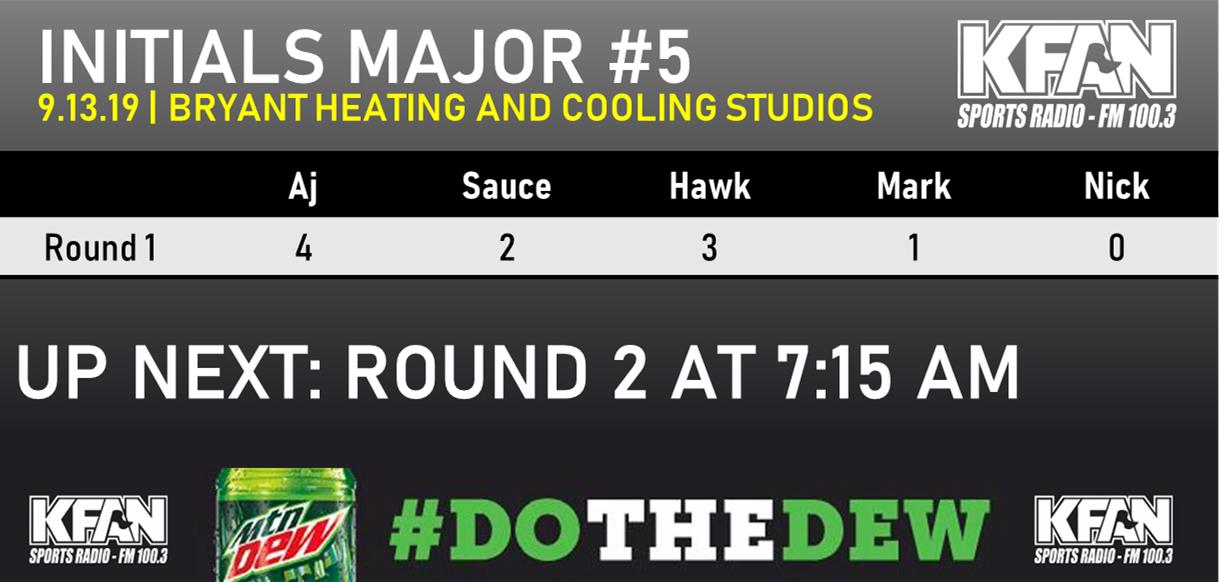Game 38: February 20, 2015the Initials Game
- Game 38: February 20 2015 The Initials Game On Tonight
- Game 38: February 20 2015 The Initials Game On Saturday
During a conference call on Feb. 20, the Idaho Fish and Game Commission adopted nine proposed modifications to wolf hunting and trapping for the 2019-20 and 2020-21 seasons, extending wolf hunting opportunity, opening more areas to wolf trapping and extending trapping seasons, which all take effect immediately.
February 20, 2015 4:38 pm. Here is everything you need to know to tune into the game tonight and follow the NBA action for the rest of the week! February 20, 2015. Version 4.9 was released in February, 2019: Approximate 50% speed improvement for Conway's Game of Life and certain related rules due to detection of escaping gliders. Apgsearch v5.x was first published on March 20, 2019. The salient new features are.

Specifically, the season modifications include:
- Extended the wolf hunting seasons on public land to Aug. 1 – June 30 in Units 1, 2, 3, 4, 4A, 5, 6, 7, 8, 8A, 9, 10A, 11, 11A, 13, and 14.
- Extended wolf hunting season to July 1 – June 30 on both public and private land in units 38, 40, 41, 42, 46, 47, 53, 54, 55, 56, and 57.
- Extended the wolf hunting season to Aug. 1 – June 30 in Units 19A, 20A, 21, 25, 26, 27, 34, 35, 45, 48, 49, 52, and 52A on both public and private land.
- Extended wolf hunting season to year-round on private land and Aug. 1 – June 30 on public land in Units 66A, 68, 68A, 70, 71, 72, 73, 73A, 74, 75, 76, 77, and 78.
- Extended the wolf hunting season to year-round on private land and Aug. 1 – June 30 on public land in Units 51, 58, 59, 59A, 60, 60A, 61, 62A, 63, 63A, 64, 65, 66, 67, and 69.
- Extended the wolf hunting season on public land to Aug. 1 – June 30 in Units 21A, 30, 30A, 36, and 37A. Wolf hunting seasons will remain year-round on private lands in these units.
- Extended the wolf hunting season to year round on both private and public land in units with chronic wolf depredations on livestock: Units 15, 18, 22, 23, 24, 28, 29, 31, 32, 32A, 33, 36A, 36B, 37, 39, 43, 44, 50, and 62.
- Opened a new wolf trapping season on public land Oct 10 – March 31 in units 52, 52A, 53, 63, 63A, 66A, 68, 68A, 70, 71, 72, 73, 73A, 74, 75, 76, 77 and 78, but limit wolf trapping to foothold traps only on public land from Oct 10 – Nov 14.
- Modified the wolf trapping season from November 15 – March 31 in Unit 45 to allow the use of snares on public land.
Changes are reflected online in the digital version of the 2019-20 Idaho Big Game Seasons and Rules.
Background
Fish and Game biologists recently released a new statewide wolf population estimate based on remote camera surveys and other monitoring efforts. The estimate indicates Idaho’s wolf population remains robust through fluctuations of births and mortality over the year with an estimated peak of 1,541 wolves during summer 2019 after the annual birth cycle and about 1,000 wolves at the end of the year.
The Commission has incrementally and consistently increased wolf hunting and trapping seasons for more than a decade in response to livestock depredations and impacts to other big game species. But the 2019 estimate showed the wolf population remains well above the federal recovery criteria of 150 wolves and 15 breeding pairs statewide.
Wolf predation on livestock and other domestic animals remains chronic in certain areas and would increase if the wolf population expands into southern Idaho. Wolf predation also continues to have a negative effect on elk populations in some backcountry areas.
During the 14-day public comment period, Fish and Game received comments from 27,076 people about the hunting and trapping proposals, of which 5,675 were from Idaho residents. The percentage of support/opposition was fairly consistent throughout the nine individual proposals.
Among Idaho residents who commented, about 55 percent supported each of the proposals, and about 45 percent opposed.
When all 27,076 comments were tallied, between 15 and 16 percent (depending on the proposal) supported them, and 84 to 85 percent opposed, with the majority of responses coming from outside of Idaho and many coming from outside of the U.S.